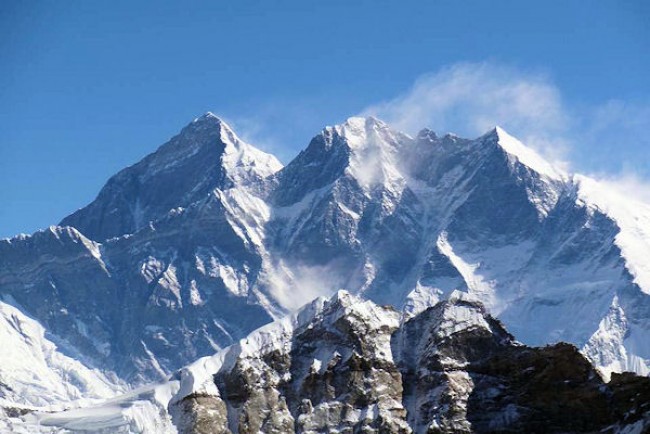Altitude sickness
Altitude sickness or mountain sickness is the biggest risk to Mt. Everest climbers It affects many aspects of a climber’s health. Even with the comparatively lengthy period required Everest, they will be moving out of their comfort zone as will find it difficult to assimilate once they have passed above base camp, and in the Death Zone above 8,000m they are beyond the limit of their adaptation ability to the altitude.
There is a third of the available oxygen on the summit of Everest thus making heart, lungs and muscles cry out for more oxygen during the climb.
Temperature
Air temperature drops by roughly 0.65C per 100 meters of height gained. That means at 8,800m they can expect the temperature to be about 57C less than at sea level.
Weather
The window of opportunity for summiting Everest is dictated by a good weather forecast but many are the climbers who have been caught out by storms, holding out a little too long on summit day.
Falls
One of the highest direct causes of death on Everest is falls. Maintaining vigilance footwork, double checking knots and karabiners are imperative precautions to take.
Avalanche
Twice as likely as falls to get them on the slopes Everest.
Crevasses
These are great cracks that appear in glacial ice which threaten to swallow careless or unfortunate climbers.
Summit Fever
The temptation to push on for “just another ten minutes” is strong in all of us. But combine it with the fear of failure and walking away from an expedition that has required so much effort to put together along with the mind-altering effects of altitude and there is a recipe for disaster.
One of the biggest challenges for climbers is to ensure you get red blood cells (e.g. oxygen) to your muscles. There is a third of the available oxygen on the summit of Everest thus making your heart, lungs and muscles cry out for more oxygen during the climb. Once exposed to high altitude the watery part of our blood decreases to increase the density of the red blood cells thus making our blood thicker and harder for the heart to pump. The heart pumps faster and we breath harder to compensate and over time, this is corrected with more red blood cells.


Recent Comments